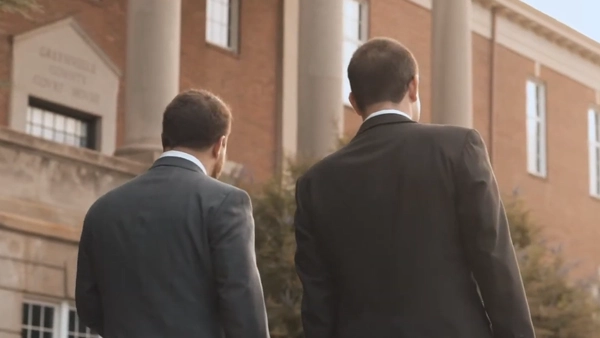South Carolina licenses and regulates the sale of alcohol in bars, restaurants, and other establishments. There are steep legal consequences for serving or selling alcohol to minors, and state alcohol laws can play a role in determining liability after a drunk driving accident caused by a minor.
If a client is the victim of a minor’s conduct while under the influence of alcohol, the liquor liability lawyers at David R. Price, Jr., P.A. represent victims by investigating how the underage person acquired the alcohol and seeking maximum compensation from the responsible party.
For legal guidance on your liquor liability case in South Carolina, get in contact with our law firm at 864-271-2636 today.
Laws Governing Alcohol Sales to Minors
Pursuant to S.C. Code Section 61-4-50, it is unlawful for a person to sell beer or wine to a person under twenty-one years of age. It is also a license violation for a licensed establishment to sell or serve alcohol to a person under the age of 21.
It is also illegal for a bar or other alcohol-selling business to transfer alcohol for underage persons to drink. A retail location that sells alcohol must post signage informing the public that it is illegal for those under 21 to buy or drink alcohol.
Who Can Be Held Liable?
South Carolina alcohol laws primarily hold two main groups responsible for underage alcohol sales: the business itself (and, by extension, its owner) and the individual who sold or served the alcohol.
Sellers and Establishment Owners
A seller is a retail business that is licensed or permitted to sell alcoholic beverages. This can include anything from a bar to a liquor store to a gas station or grocery store that sells beer and wine. A commercial establishment may face fines or revocation of its alcohol license for violating the law.
Cashiers, Sales Clerks, Servers and Wait Staff
The specific person who serves or allows the purchase of alcohol to a minor can also be subject to criminal prosecution.
For a first offense, the person serving or otherwise allowing the purchase of alcohol may face a fine between $200 and $300 and/or 30 days in jail. For a second or subsequent offense, the fine may be between $400 and $500 and/or 30 days in jail.
Anyone who violates the law must also participate in an alcohol enforcement education program.
Parents or Guardians
Serving alcohol to minors is illegal in South Carolina. However, parents or guardians are allowed to let their underage child drink alcohol, but only if this is on private property or within the home.
If a minor gets behind the wheel after drinking under the supervision of their parents or guardian, their parents or guardian can be held legally responsible for accidents that result. So, if an accident were to happen, the parents could face a lawsuit for the injuries or damages caused.
How Liability Is Determined
If the person purchasing alcohol was under 21, then a failure to require identification to verify the purchaser’s age is sufficient evidence that the law was broken. However, there often isn’t direct proof of a failure to require identification unless either the person who sold the alcohol admits to it or the individual who purchased it was an undercover law enforcement agent. Therefore, these cases often require an injured person to build a case that the seller of alcohol knew or should have known the person was not 21 years of age, regardless of whether the seller requested identification.
If you or a loved one was injured in an underage drunk driving crash, you will need to hire experienced legal counsel to prove that the business or employee who sold the alcohol violated the law. This evidence may include:
- Surveillance video footage either outside or inside the establishment
- A statement from the underage drunk driver concerning where he or she obtained the alcohol
- Sales receipts and bank statements showing the purchase of alcohol
- Eyewitness statements (including from other employees)
- Evidence that an adult purchased alcohol on behalf of a minor
- Evidence from an accident scene, including breathalyzer test results
- Police accident reports
Training and Policies for Alcohol Vendors
The Palmetto Retailers Education Program (PREP) is a short course that helps reduce underage access to alcohol as well as the liability risks for businesses and their employees.
PREP is available for managers, servers, and sellers in all 46 counties in South Carolina. It is approved by both the S.C. Department of Revenue and the Department of Alcohol and Other Drug Abuse Services (DAODAS).
PREP is the only merchant education program available in the state that covers off- and on-premises alcohol sales practices and the development of manager and supervisor sales policies. A business that completes the program may receive reduced alcohol liability insurance rates and possibly lower administrative fines.
Role of State and Local Enforcement Agencies
Alcohol Enforcement Agents with the State Law Enforcement Division (SLED) investigate possible violations of laws and regulations about underage alcohol sales. Agents may conduct licensed location inspections, unlicensed location investigations, and compliance checks. These compliance checks use underage individuals who cooperate with agents to test whether a business is serving minors alcohol.
Meanwhile, pursuant to S.C. Code Section 23-3-160, in the event of any accident involving injury or death to a person under the age of 21 where there is cause to believe that the person under the age of 21 consumed any alcoholic beverage before the accident, the local law enforcement agency having jurisdiction is required to undertake a detailed investigation to determine how the alcoholic beverage was obtained. SLED is also required to assist in the investigation.
Local law enforcement agencies, such as police departments, also play an additional role by ticketing underage drinkers. This law enforcement action can lead directly back to the business or employee that was responsible. In the event of a wreck involving an underage drunk driver, the accident report may contain this information as well.
Impact of Alcohol Sales to Minors on Public Health and Safety
Underage drinking increases the risk of drunk driving accidents, putting public health and safety in jeopardy. Alcohol is the most widely used substance among minors. According to the National Survey on Drug Use and Health (NSDUH), in 2022 approximately 19.7% of youth from ages 14 to 15 reported having at least one drink in their life. That same year, 5.8 million youths aged 12 to 20 reported drinking more than “just a few sips” of alcohol in the previous month.
Civil Liability for Selling Alcohol to Minors
When businesses violate South Carolina alcohol laws, there can be consequences. Aside from the criminal penalties mentioned above, there are other potential financial repercussions in the form of civil lawsuits by persons injured by an intoxicated minor.
Lawsuits by Third-Party Victims
Unlike many states, South Carolina does not have a statutory dram shop law that automatically creates financial liability for businesses that serve alcohol to underage drivers who cause drunk driving wrecks. However, the courts have observed that the statutory prohibitions against selling alcohol can establish a duty not to sell alcohol to minors under a theory of liability known as negligence per se. Accordingly, if a person is injured by an underage drunk driver, then violations of the state’s criminal laws can serve as a basis for lawsuits against establishments that sell or serve alcohol to underage persons.
Lawsuits by the Minor Who Was Provided Alcohol
Additionally, the courts have observed that statutes prohibiting the sale of alcohol to minors are designed to prevent harm to the minor himself, as well as to members of the public who are harmed by the minor’s consumption of alcohol. Therefore, where an underaged person injures himself after consuming alcohol that was unlawfully provided to him by a business, he may also have the right to bring a lawsuit against any establishment that sold or served him the alcohol.
How We Can Help
If you’ve been affected by illegal alcohol sales to a minor, here’s how we build your case at David R. Price, Jr, .P.A.:
- Investigating the Incident: We gather all the details about what happened. This investigation includes reviewing police reports, witness statements, and security footage if available. We look for proof that alcohol was sold to a minor.
- Collecting Evidence: We collect and use receipts, security footage, ID records, and expert testimony to strengthen your case. If alcohol was sold to a minor, we work to prove it.
- Establishing Liability: Sometimes, it’s not immediately obvious who was responsible for the accident, and so we take time to determine who is responsible. If the alcohol came from a bar, store, or social host, we prove that they broke the law by selling or providing alcohol to minors.
- Proving Negligence: We show that the seller had a duty to check IDs or otherwise verify age, failed to do so, and caused harm as a result, thereby proving each of the elements of negligence.
- Working with Experts: We consult toxicologists, accident reconstruction experts, and law enforcement professionals to confirm how the illegal sale contributed to the harm that you’ve suffered.
- Calculating Damages: We gather and calculate medical bills, lost wages, and emotional distress. Our goal is to obtain full compensation for your losses.
- Negotiating and Litigating: Many cases are settled out of court. We will negotiate to get the best outcome for you. If the other side won’t fairly resolve your case, then we’re fully prepared to take your case to trial.
Contact Our Experienced Liquor Liability Attorneys Today
Businesses that profit from the sale of alcohol have a legal duty to comply with South Carolina alcohol laws and avoid selling or serving alcohol to minors. Therefore, victims who have been harmed because of underage drunk drivers may have a claim against such establishments for the losses caused by intoxicated minors.
The lawyers at David R. Price, Jr., P.A. have extensive experience representing people who have been injured by drunk drivers. Our law firm can review the circumstances surrounding your accident and get to work seeking the monetary damages you deserve. Give us a call at 864-271-2636 today.
Frequently Asked Questions
+ Who Is Legally Responsible for the Sale of Alcohol to a Minor?
Anyone directly involved in the sale or service of alcohol to a minor can be held responsible. This includes bartenders, cashiers, servers, business owners, and sometimes even social hosts. In certain cases, liability can extend to managers or owners if they fail to properly train employees or enforce efforts to verify age, including but not limited to checking IDs.
+ What Are the Penalties for Serving to a Minor With Criminal Negligence?
Penalties can vary significantly but typically include fines, possible jail time, and the suspension or revocation of a liquor license. The severity often depends on state laws and whether the act contributed to an accident or injury.
+ Is It Enough to Check a Customer’s ID to Avoid Liability?
Checking ID is a fundamental step, but it’s not always enough. The ID must be checked carefully for authenticity, and employees must be trained to spot fake IDs to fully protect against liability.
+ How Can a Business Prove It Took All Necessary Precautions to Avoid Selling Alcohol to Minors?
A business can demonstrate diligence by showing records of staff training, the consistent use of quality ID scanners and software, posted signs about ID requirements, and documented policies for handling situations where a minor attempts to purchase alcohol.
+ Can Parents Be Held Liable for Their Minor Children’s Alcohol Consumption in South Carolina?
Yes, parents in South Carolina can be held liable if they knowingly allow minors to consume alcohol in their homes and harm to third parties results from that consumption.







